Description
The England Grant of $2500 may be available for qualifying families.
Individualized grant funding for qualifying families may be available through our President’s Grant. Contact us for more details!
Meet Kenneth. This little guy loves to smile. He was born in August of 2015 and his special need is listed as cerebral agenesis, epilepsy and patent foramen ovale. A family met Kenneth but was unable to bring him home. However they are happy to speak with any interested families who e-mail Kathy (kathy@wiaa.org) and ask to be put in touch. This family shared the following information from their August 2019 visit:
We were together with Kenneth for a week, mostly in and around our hotel. He was a few weeks shy of 4 years old when we met, and his nannies told us he had been with the same foster family for about 3 years or since he was 1. When we met him, one of his nannies said that he relied very much on his foster family and had trouble adjusting to the orphanage during the few weeks before we met him.
My husband and I have no medical training or background, but we described his behaviors to our IA doctor, and she strongly felt that he exhibited behaviors that were characteristic of autism or a similar developmental condition. We have no way of knowing if these behaviors were orphanage-related or something more permanent, but it is notable that we were told that he was with a foster family for several years. He would lay down alone (usually with his back to us) and stare at his toys (usually a car) very closely. He did this throughout the day along with lining up toy cars and other items. He also exhibited stereotypies – he made repetitive motions with his right fingers and had worn away some skin on his finger from making this motion over and over. He made the hand gestures throughout the day. He also made movements with his tongue where he would stick out and/or roll his tongue. The tongue movements were less frequent and seemed to occur when he was overstimulated or upset. He would also put his thumb in his mouth and his other hand down his pants. This seemed like a way of comforting himself (our IA doctor said this is very common) and he would turn away or hide when he did this, possibly because it was corrected in the foster family/orphanage.
Although he had a history of at least one seizure (documented in his file), we did not witness any obvious seizures. He would sometimes hold his head with both hands and make unusual faces (spaced out) or grimace. We wondered if he had headaches due to the way he would hold his head and grimace and we told his nannies about this. Our IA doctor said that this could just be a behavior though. His head was significantly flatter on one side (presumably from laying on his back/side) and we have no reason to believe this was anything other than cosmetic. His head circumference was normal by my measurement.
He did make eye contact at times and was very smiley but would smile at odd times. He would smile/laugh or ignore when the guide corrected him for standing on the table or throwing things or hitting. His behavior didn’t seem intentional or defiant – more like he did not have a sense of social cues—what a stern face or voice means, etc. When we met, his nannies told us that Mandarin was his language and not Cantonese or any other dialect. It is hard to say whether he understood what the guides were saying in Mandarin. He seemed to understand much better if the directions were visual and not language based — if the guide showed him medicine on a spoon and gestured to his mouth, he understood she wanted him to take the medicine. Our overall sense was that his receptive language was not good.
He had very few words in Mandarin – car (for any toy with wheels), candy (for anything that he thought was candy including medicine), wet (for anything that was wet — diaper, shirt, a puddle on the floor), mama, baba, no, I want. He would say hello and bye bye (in sing song English) when referring to himself entering and leaving the room. If he fell down, bumped himself, or had a scab, he would hold out the hurt part say the same word. The guides said it was not a real word in Mandarin, but he would use it consistently when he was hurt. He would repeat sounds (echolalia) like the elevator bell – ding dong. He would also hum/sing a cartoon song from Boonie Bears, a Chinese cartoon but did not say the actual words.
Our guide tried to ask him about the characters from the Boonie Bears because he clearly knew the cartoon and we had stickers of the characters, but he did not respond to her questions. She asked him other questions and was generally not able to get him to answer questions or follow relatively simple directions and it wasn’t always clear whether he didn’t understand her or if something else was going on. Because he could repeat sounds and heard us when we made noises behind him, we believe he could hear. We could not really rule out some hearing loss.
He did not seem to have a sense of danger. He darted out of the hotel room door in front of my husband and tried to climb the atrium railing—which was a very big drop.
His motor skills were age appropriate or even a little advanced. He could put on his shoes by himself but sometimes put them on the wrong feet. He could feed himself with a spoon and open some wrappers. He was generally very agile and liked to climb. He required very close supervision due to his agility. If he saw me put something out of reach – like medicine — he would figure out how to get it by moving chairs and climbing. He remembered physical routines, like opening/locking the hotel door when we leave and come back. He remembered that we would push a dresser in front of the hotel door (see above), and would “help” me push it in front of the door. He remembered where the fruit was on the hotel buffet and led me to it on one of the last days we were there. He LOVED to push the button for the elevator. My husband was injured during our trip, and he knew that my husband needed crutches to walk after seeing him use the crutches a few times. He liked pushing heavy things and performing little “jobs” like putting pillows in the dresser.
He enjoyed being held. He would hold his arms out to be picked up, and would hold my hand when we walked around. He seemed most content when walking around or riding in cars (no car seats in China). In the hotel, he loved to play with water in the sink and would “wash” his cars for long periods of time and pour water in and out of bottles. He also liked to turn the light switches and other switches on and off numerous times. He also really liked to look through the keyhole in the door to the hotel. I think he would really enjoy playing on playground equipment and running around in a park, etc.
He was a good eater. He loved the sweet yogurt drinks that are common in China, but these caused him to have very soft stool, and we believed he was lactose intolerant and tried to limit his dairy products during our time with him. He liked fruit, congee with small pieces of meat, and would also eat spaghetti with sauce. He loved candy.
We never restricted food during the time we were with him. He would, however, throw and crush food and dump water/drinks as soon as he was done eating/drinking. He sometimes threw food at people but mostly on the floor. We gave him snack cups and sippy cup for his water so he could not pour water and throw/crush food as easily. He would throw those items once he was done drinking and eating.
He preferred me to my husband and 5 year-old son. He would occasionally pinch me and try to break my skin with his fingers, but he didn’t seem angry. He would frequently seek out my son and husband and throw things at them or hit them, but would smile when he did it or right afterwards. This behavior seemed more impulsive and not defiant. We would just try to redirect him when he did this. He would melt down if he could not have something he wanted – things like Advil (which he thought was candy) or my husband’s crutches. I believe his meltdowns and mildly aggressive behavior were at least partly because his world was upended, and because we either didn’t know what he wanted or could not give him what he wanted for safety reasons. He was very afraid of the doctor.
He was not potty trained and showed no inclination to use the toilet (which may have looked strange to him). He did know when he was wet/soiled, and on a few occasions, he would say the Mandarin word for wet and helped me find a diaper to change him. He was usually cooperative when changed.
He slept in a pack and play, and he slept very well through the night for about 10 hours. I did give him a children’s melatonin gummy, as nighttime/the dark seemed to make him nervous.
Videos from 8-19 visit:
For more information, please contact: Kathy@wiaa.org. You will be asked to complete a parent eligibility form before any file information can be released.
Please be aware that children on our waiting list may be under review by multiple families. Additionally, a child’s availability status may change on short notice. Please contact Kathy@wiaa.org for the most up-to-date status of a child.
Disclaimer:
WIA is not responsible for the medical information summarized here. Medical information sent by other countries may be inaccurate or incomplete. Prospective Adoptive Parents reserve the right to have medical information evaluated by a medical professional in the United States.





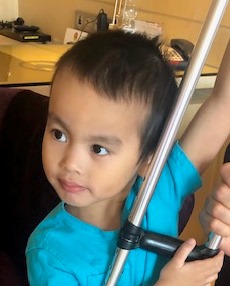
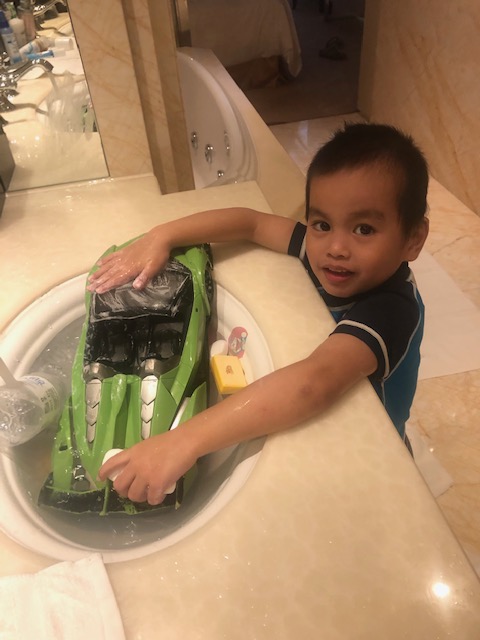

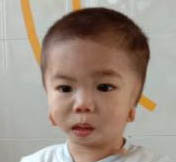
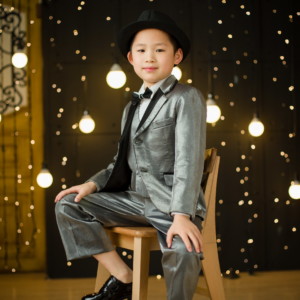
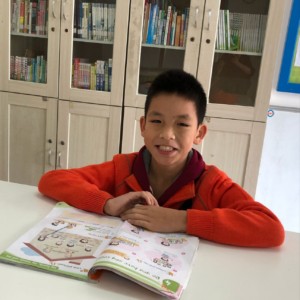
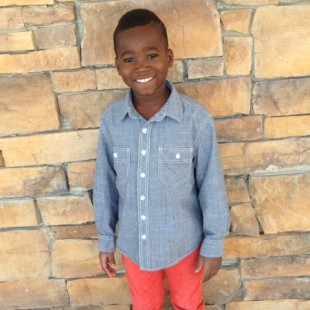
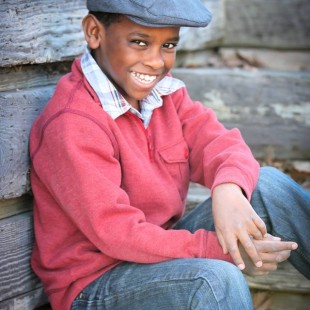

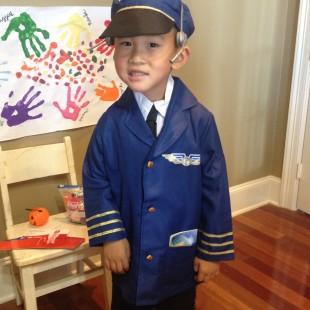
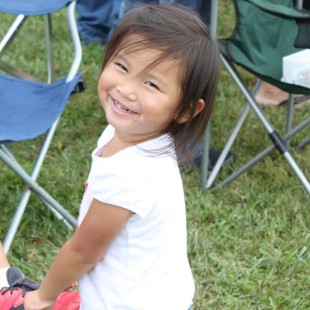
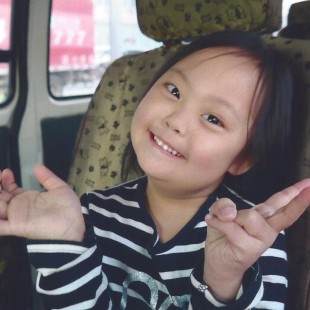
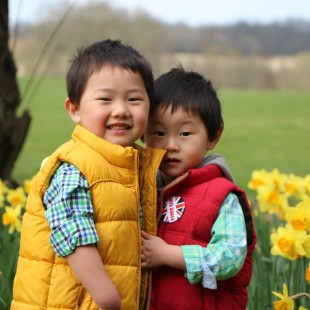
Leave a Reply